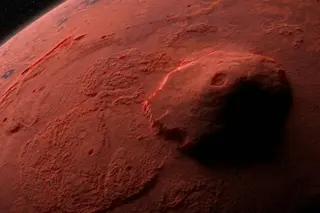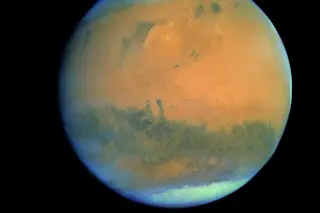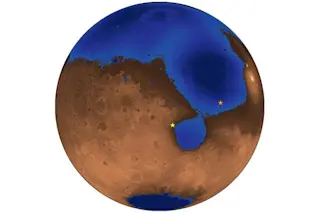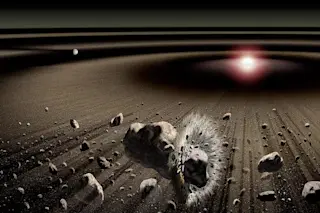In another promising sign that primitive life could have once existed on the surface of Mars, researchers have found deposits of a mineral that suggest that the planet once had life-friendly bodies of liquid water. The mineral, carbonate, has previously been detected in only trace quantities on Mars, but new data from the Mars Reconnaissance Orbiter's spectrometer shows deposits in a rock outcropping in a region of valleys called the Nili Fossae.
Since acidic conditions can prevent carbonates from forming, the discovery suggests that the rocks were created in neutral-pH water that might have provided a cosy habitat for life [New Scientist].
Water ice currently exists on Mars, and over the past few years researchers have accumulated evidence of liquid lakes and streams in the planet's distant past.
Most evidence has pointed to a period when water on the planet's surface formed clay-rich minerals, followed by a time of drier ...













